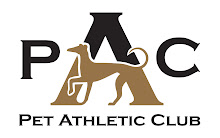Employers and parents concerned about drug abuse on their properties have a new tool at their disposal: Big Tony.
Big Tony is an 80-pound, 2-year-old labrador retriever whose nose is the foundation of Utah Drug Dog, the first company in the state offering contracted canine searches for illegal drugs. Now just over two weeks old, the company offers discreet inspections of homes, offices or schools that cater to the client, rather than the legal system.
Big Tony has been trained to detect marijuana, heroin, methamphetimine, crack and cocaine in a matter of seconds. Once he picks up the scent, the dog stops and sits, then stares in the direction from which the smell is coming. His reward is simple: Ty Brown, co-founder of Utah Drug Dog, tosses a tennis ball, Tony's "favorite thing in the world."
"He's the cheapest labor in Utah," said Brown. "It's a game, and he loves to do this."
Brown, who also owns Communicanine, a Riverton-based dog training company, and who formerly worked for a security dog agency in Boston, trained Big Tony using "pseudo," imitations of illegal drugs that offer identical scents. Now, though, Utah Drug Dog is licensed by the state to handle illegal drugs, and Brown hopes for a license from the Drug Enforcement Administration.
Big Tony has been trained for much of his life to be a sniffer; though he must be focused and in control,
Advertisement
<a href="http://63.225.61.6/ADCLICK/CID=000050e2635c557e00000000/area=slt.BUSINESS.articles.positionY/adsize=300x250/aamsz=300x250/keyword=/site=/acc_random=62729178/pageid=62729178" target="_blank"> <img src="http://www.nacorp.com/ads/1pixel.gif" alt="" border="0" width="300" height="250" /> </a>
exuberance and constant willingness to play are among his most important traits. Utah Drug Dog uses only Big Tony, but Brown hopes to someday have three canines.
Among the benefits of searching with a private company, according to Brown, are possible discounts for businesses on liability insurance and the ability to search a family member's room without his or her knowledge. Furthermore, if drugs are found, clients can dispose of them and approach employees or loved ones as they wish; Utah Drug Dog does not report discovered drugs to the police.
"Our job is to locate drugs and tell people that they may have a problem," said Brown. "Then it's up to them."
But Sgt. Richard Lewis of the Salt Lake City Police Department, City Narcotics believes that while a service like this can carry many benefits, police intervention is often the only guarantee of treatment for drug abusers.
"You have to have someone held accountable if you want them to get help," he said. "You can't keep enabling them."
Because Utah Drug Dog is the first business of its kind in Utah, Brown plans to lean heavily on consumer education in the business's initial stages. For now, the Web site and cold calls to potential customers are the main forms of marketing.
"But we think that word of mouth will be our best advertisement," he said.
For consumers, the service can carry a hefty price tag. Homes typically cost around $150 to search, and full-day inspections of large businesses or school districts can cost more than $600.
Still, Brown believes that the benefits outweigh the financial burden.
"This can be low-cost, it can be free or it can save you money," once insurance breaks for businesses are factored in, said Brown. "And if your child isn't doing any drugs and you do the search, you didn't break the child's trust.
"If you confront your child about it, the child can hide the drugs again or lie to you," he said. "But drug dog doesn't lie."
Friday, July 18, 2008
Subscribe to:
Post Comments (Atom)

No comments:
Post a Comment